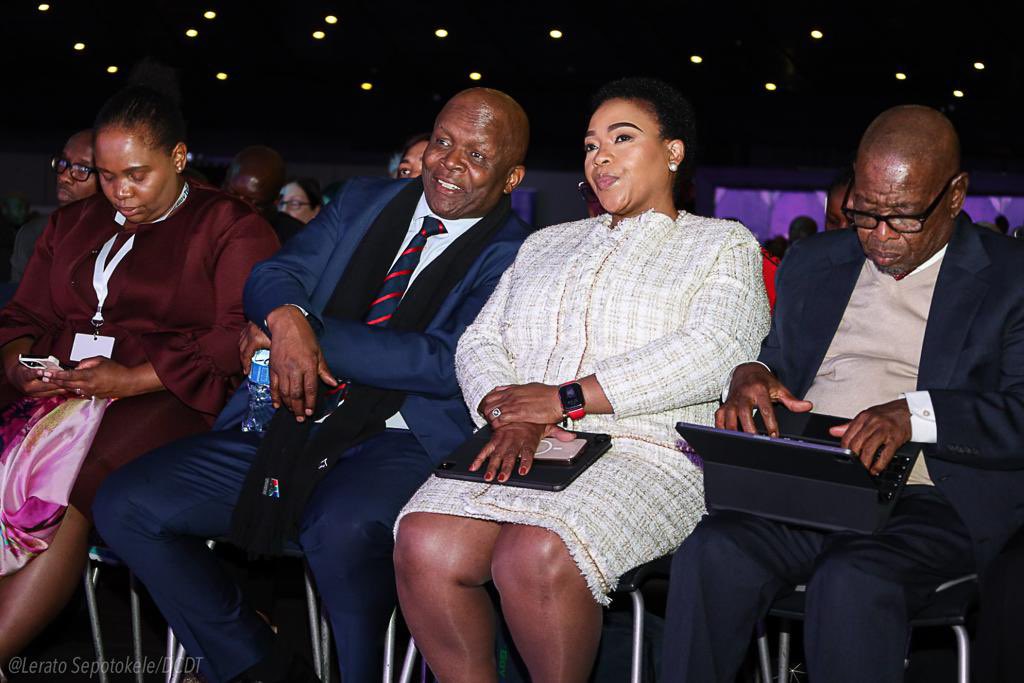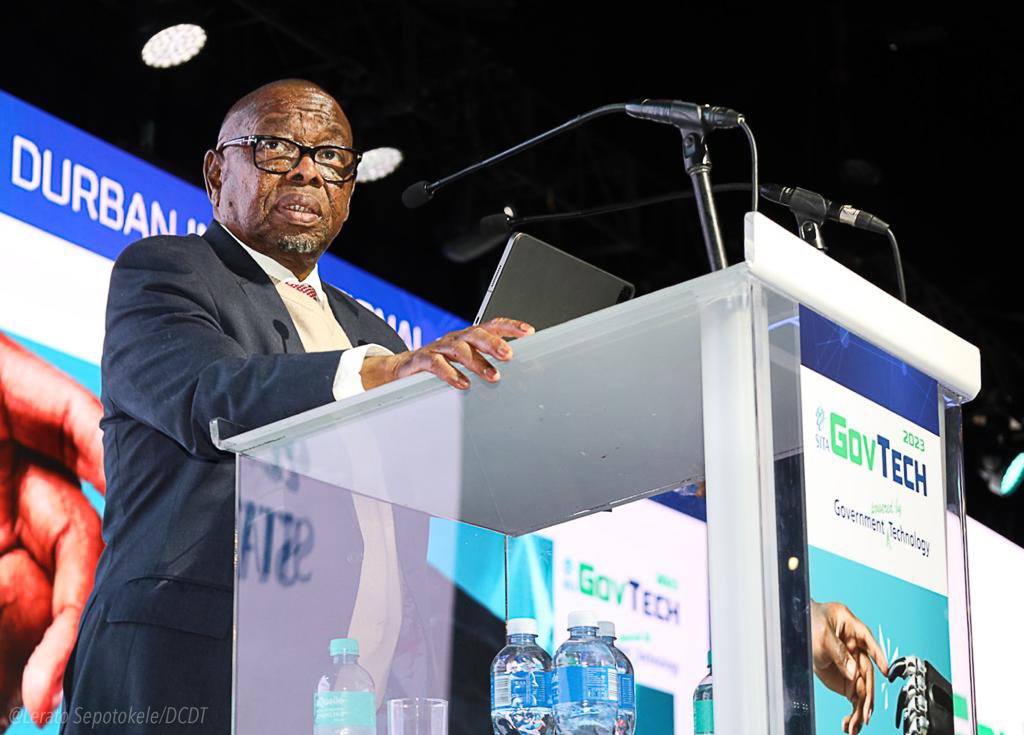Johnathan Paoli
The Minister of Higher Education, Science and Innovation, Dr Blade Nzimande praised the country for its achievements in skills development and for propelling South Africa forward in a world increasingly driven by technology and innovation.
Nzimande addressed the GovTech 2023 held at Durban ICC on Wednesday, under the theme of “Platform Economy for Digital Transformation and Inclusive Growth”.
He said the role of digitisation in solving simple problems and challenges remains fundamental in addressing such problems as why fax numbers and fax machines are still being utilised, and why still in many cases emails as means of communication are still rejected in favour of papers that must be posted.
Nzimande challenged GovTech to identify things they will change from one conference to the next and said that the reduction of the digital divide could effectively be facilitated by empowering women, youth and people with disabilities, with special attention to under-served rural communities to enable them to participate meaningfully in the digital economy.

The minister emphasised the importance of the National Open Learning System (NOLS) as one of his top five priorities for training, saying that the shift to provide for learning material for NSFAS students to include digital devices will not only address technology enabled pedagogy over the lockdown period but will truly move South African education into the modern era offering access to wider resources.
NOLS is an initiative of the Department of Higher Education and Training (DHET) that aims to provide quality, accessible and affordable learning opportunities for anyone who wants to improve their skills and knowledge.
“I am glad to report that the NOLS is fully functional, and to date over 18 000 lecturers and students have registered on the system and have access to more than 9800 resources,” Nzimande said.
The Minister also emphasised the importance of TVET curriculum transformation and innovation as a key to unlock skills development for the modern economy, and said that TVET colleges could play a very large role in addressing the skills needs of the Fourth Industrial Revolution, such as artificial intelligence, robotics, biotechnology and nanotechnology.
“We have embarked on a comprehensive plan to review and update the offerings at TVET colleges in order to align our educational programs with the demands of the rapidly evolving economy and society,” he said.
He further stressed the insitutionalisation of the post-Covid shift to online teaching and virtual learning environments, but recognised the reality of the majority of historically disadvantaged universities in keeping up, reflecting the bigger challenges of the country.
Praising government’s ten year Plan for Science, Technology and Innovation, Nzimande said it would include commitments to undertake, amongst other, regulatory reforms to create a more enabling policy environment for innovation in the country and to forge a closer collaboration between higher education and training bodies and employers, to ensure that skills development more effective corresponds to the needs of the economy.
Based on the establishment of the Centre for Artificial Intelligence Research (CAIR) in 2011 in order to conduct foundational, directed and applied research into various aspects of Artificial Intelligence; the department was seeking to create a core driver of the nation’s vision of AI research and innovation, he said.
He made mention of the 10th Meeting of BRICS Ministers of Education, held on 13 July 2023 in the Mpumalanga province, and said the BRICS countries should explore opportunities within BRICS digital education cooperative mechanisms which includes holding dialogues on digital education policies, sharing digital educational resources, building smart education systems and jointly promoting digital transformation of education within member states.
“Of course, the digital economy knows no boundaries, we therefore should encourage collaboration and cooperation with our international partners and leverage the expertise of global tech leaders to facilitate knowledge transfer and skill development,” the minister said.
The minister concluded with the need for the country to remain committed to transforming all sectors of education to keep pace with the growing developments in technology and how they relate to the needs of a digital economy.
INSIDE EDUCATION







